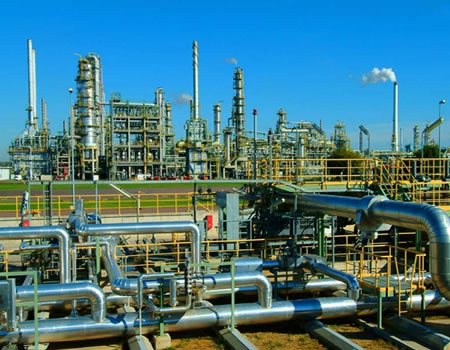CRUDE Oil, since it was discovered in 1956 at Oloibiri, a remote hamlet in Bayelsa State, has remained the life wire of Nigeria’s economy. This is for over six decades now. What will happen, if at present, we wake up and find out that our lush oil wells have all evaporated?
Now, other members of the Organisation of Petroleum Exporting Countries (OPEC) have continued to amass enormous foreign revenue as a result of locally refining their crude oil. But the opposite is the case with Nigeria. We drill our raw crude, then afterwards, voyage it oversea to be processed into other finished energy by-products. That we have to pay for the unrefined crude to be shipped out of our shores and then buy back with huge foreign exchange is obviously difficult to comprehend; it is ludicrous, to say the least.
Reports have it that Nigeria is the only OPEC member-state that still imports petrol. The country presently imports about one million tonnes of Premium Motor Spirits (PMS) every month, making it the largest importer of PMS in the world.
In June this year, the Central Bank of Nigeria (CBN) disclosed that $36.371billion was expended on the importation of petroleum products from 2013 to 2017 alone. The director in charge of research at the apex bank, Mr. Ganiyu Amao, made the disclosure while testifying before the House of Representatives Ad-hoc Committee on Refineries. The apex bank lamented that the huge amount spent on petrol imports, stating that it had affected the nation’s external reserve and induced the depreciation of the naira.
But there is the Port-Harcourt, Kaduna and Warri refineries. What, actually, ‘may be’ wrong with them? Former Minster of Petroleum Resources, Diezani Alison-Madueke, in 2014, at an Oil and Gas summit, was reported to have said that Nigeria’s four refineries have not undergone necessary repairs four years after their original builders completed the technical assessments on them in 2010.
She said the inability to carry out turnaround maintenance (TAM) was due to the scary level of decay at the plants.
‘’After I assumed office in 2007, I embarked on an extensive tour to the refineries to assess the conditions of various units. At the end of the trip, I was shocked at the extent of dilapidation and the state of decay of equipment. Most of the units were obsolete, so much so that they could hardly produce again. To get a replacement for the equipment was not possible, because they were outdated. For over 20 years, the equipment were not changed or maintained,” she said back then.
On the refineries, experts in the oil industry are of the belief that contracts awarded for their repairs were either abandoned half way or not even executed at all. However, Mr. Ibe Kachikwu, had in March, assured that the four refineries will soon be revamped and will be ready at most in 18 months. Given that the 2019 target for Nigeria to end fuel importation is fast inching near, there is need for the Minister of State for Petroleum to once again tour the ‘currently rehabilitated’ refineries to know how far work has gone and how soon the works will be completed.
- Abdulrazaq Arafat
Kano






